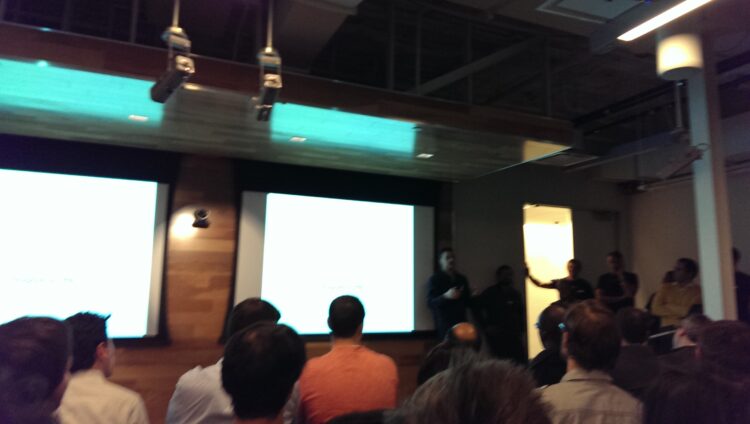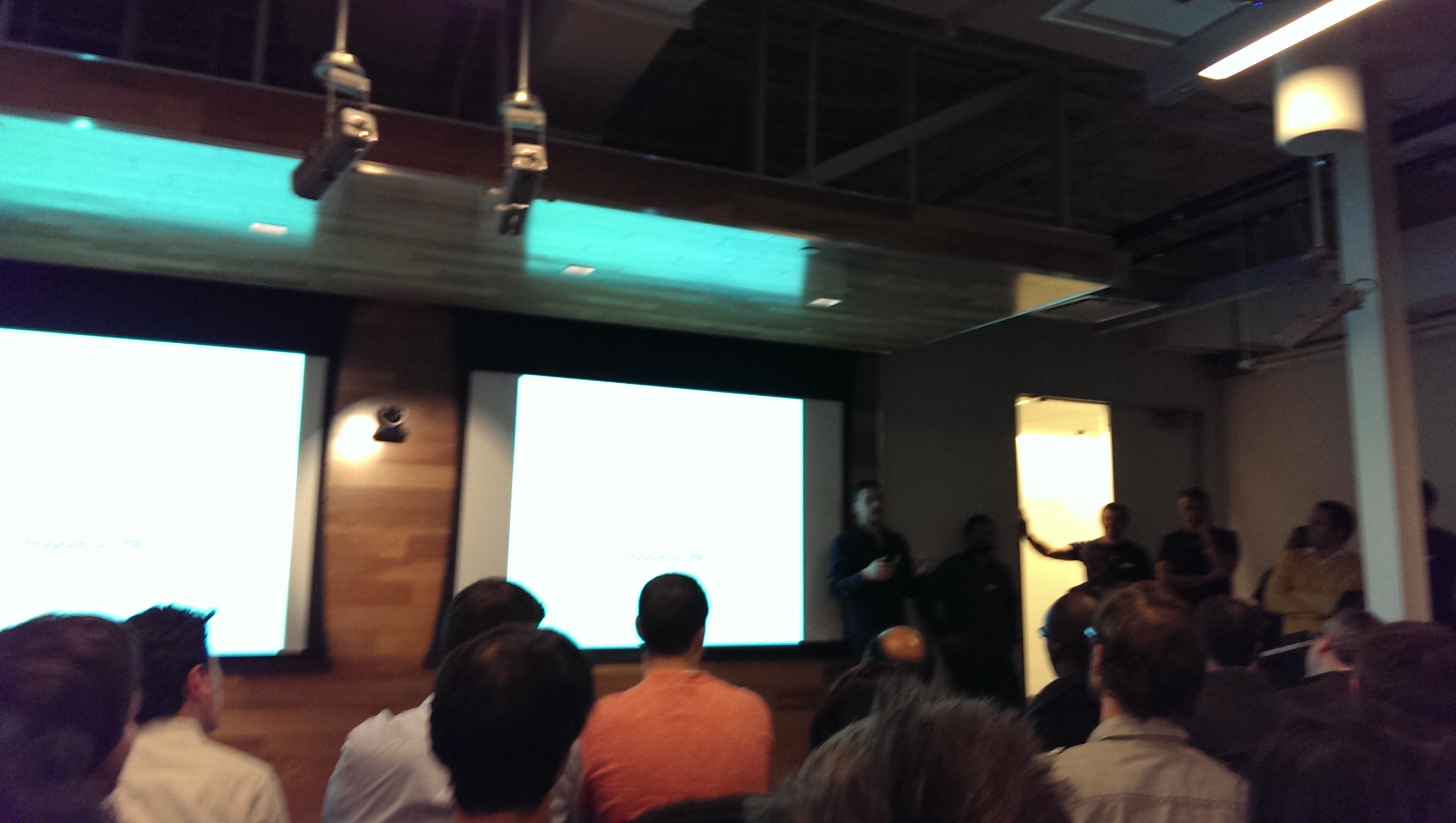This past Wednesday at the Ebay offices, the New York Hardware Meetup held its fifteenth monthly meeting, where sponsor R/GA discussed their connected devices accelerator, and makesimply announced an upcoming PCB workshop series.
Mini (as in the car company) was also in attendance, announcing a contest focused on “hardware making cities better.” Submit no more than 15 slides demonstrating an idea to make the city a better place, and email it by midnight on February 21st.
In the opening comments, predictions were made for New York to have a big acquisition in 2014, like Nest was for Google. Another prediction was the disintegration of open source hardware, with more regulations coming into place.
Curvit
The first presentation was for Curvit, presented by Patrick Raymond of Food Network’s “Invention Hunters” and founder of the Inventors Association of Manhattan. Curvit solves the nuisance of shower curtains clinging to people in narrow bathtubs, by using plastic rods to curve the shower curtain outwards and create more space. The invention has a crowdfunding campaign (as of this writing) going on Indiegogo, and it ends on Wednesday the 5th going for a goal of $40,000.
Raymond also talked about pitch meetings he held with the store Bed Bath and Beyond, and described how he needed to have real statistical evidence that people would be interested in his product. He used survey monkey to get a representative sample size of five hundred, and figured out the price for his product through the same method. He asked about the price in three ways: What’s the most you would pay for this? What’s the least you would expect to pay for this? What do you think is a fair price for this? He then took those answers and used the average to come up with his asking price of $35.
Click here for the next slide from your mobile or tablet
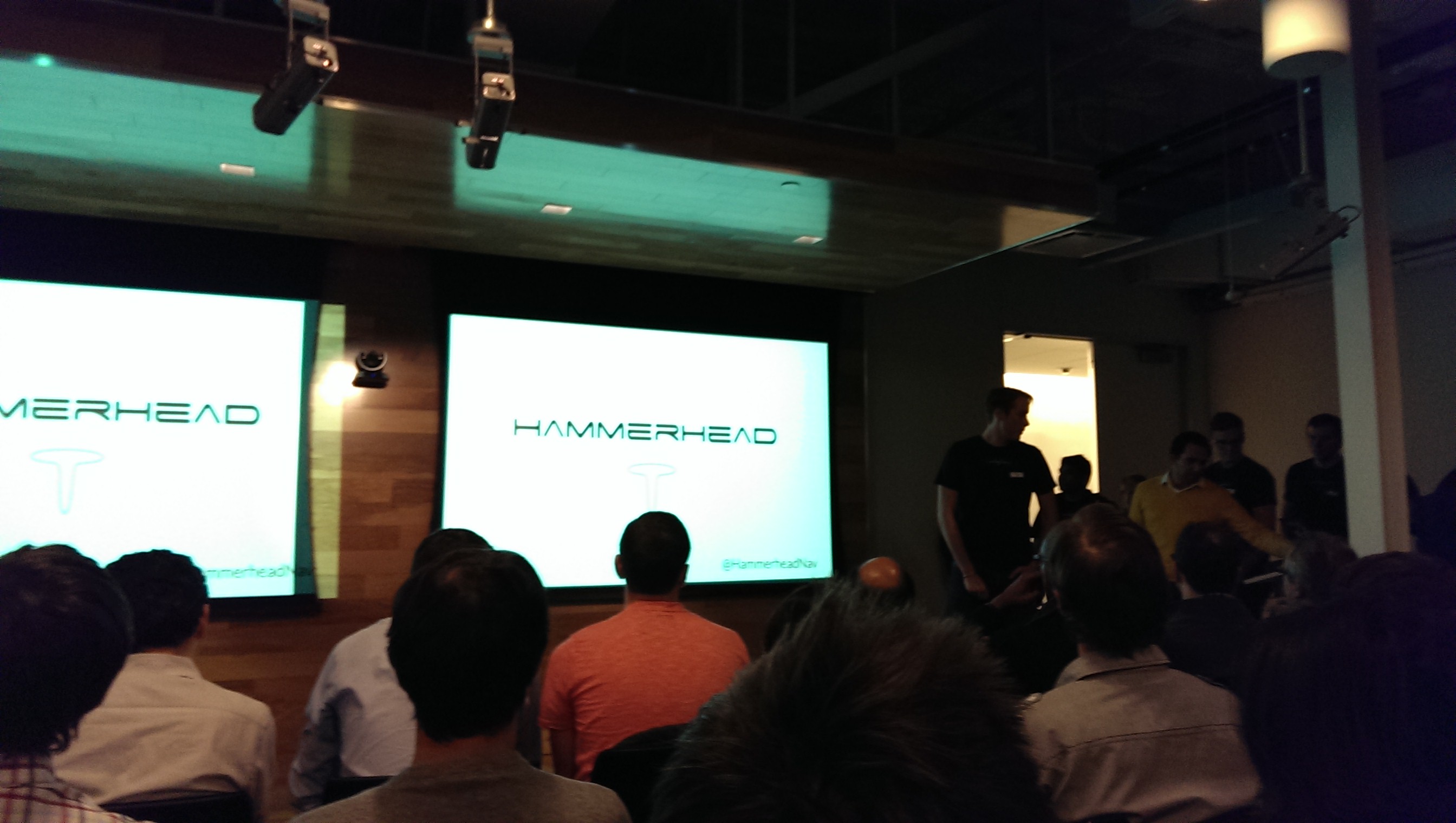
Hammerhead
In 2006, Piet Morgan was on a cross-country bike trip with a friend which was abruptly cut short when his friend died in a car accident. The experience led him to search for a simpler solution to direction navigation on bikes, and he came up with Hammerhead, a T shaped device that uses lights to indicate navigation directions on a bike, to hopefully prove less distracting and less dangerous for cyclists than a voice/app navigation guide. It went through seven prototypes in a year before arriving at its final version, and was successfully funded on Dragon Innovation, a crowdfunding platform focused on hardware. The device connects to a mobile phone through Bluetooth, and runs on a rechargeable battery that should last up to 20 hours per charge. It is available for preorder for $85, and launches in the summer.
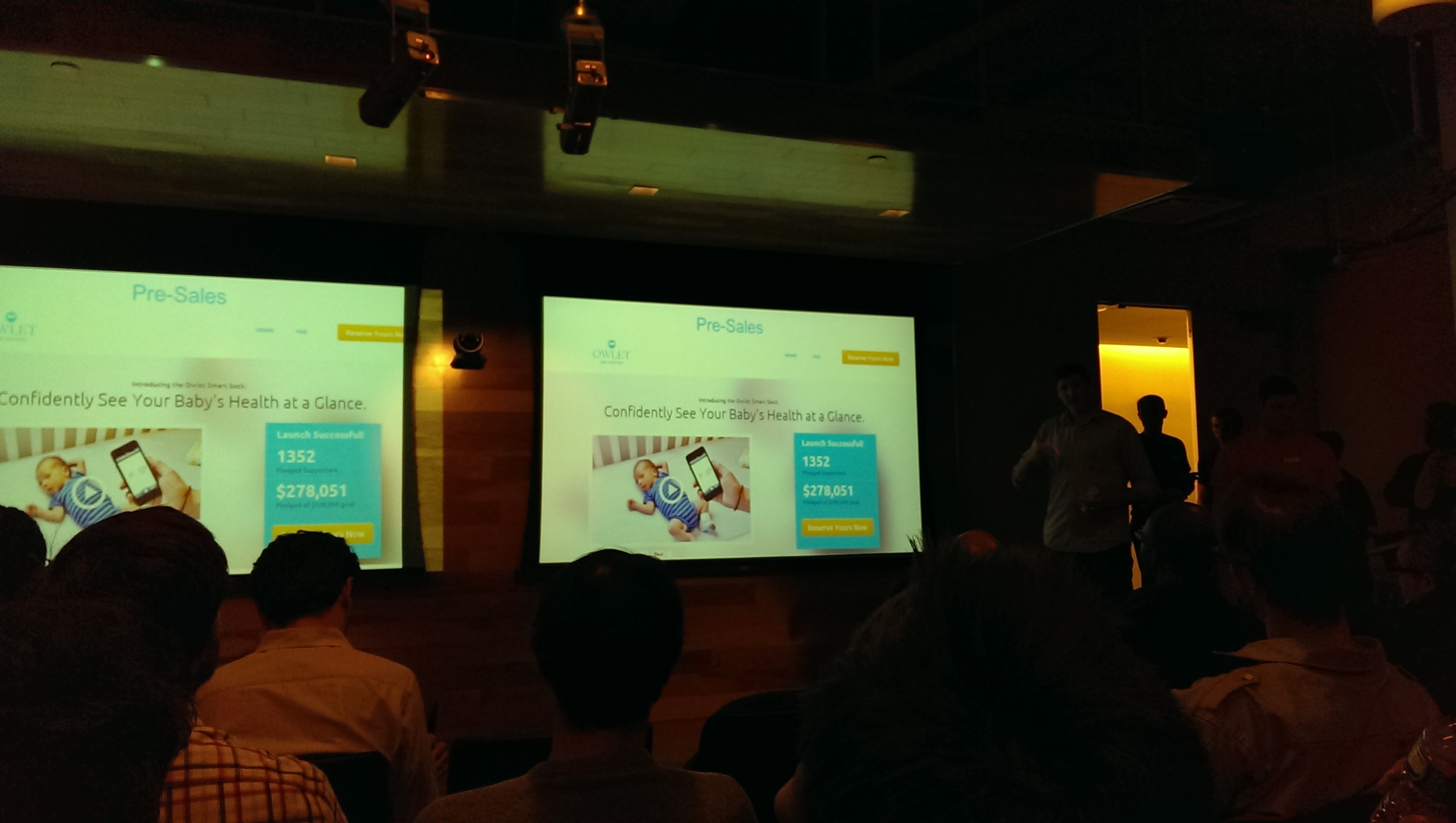
Owlet
Kurt Workman and Jacob Colvin, the founders of Owlet, wanted a more modern version of the baby monitor rather than the antiquated audio and video solutions 50% of parents use to check on their kids. They came up with the Owlet, a tiny baby monitor that wraps around the sock to monitor pulse, oxygen content, temperature, motion and quality of sleep. It uses the same LED technology used in medical pulse monitors, and has a companion iOS app for parents to check.
The device uses Bluetooth to connect to a wall outlet module, which then connects to the home wifi network to transmit the data. The founders talked about how they were slaves to the form, as prior versions were far too large and bulky to comfortably fit on a baby’s sock. They had to argue with their manufacturers and strictly adhere to the form of the sock, which defined the parameters of the Owlet’s design. The device is available for preorder on their site for $250, and ships in the summer of 2014.
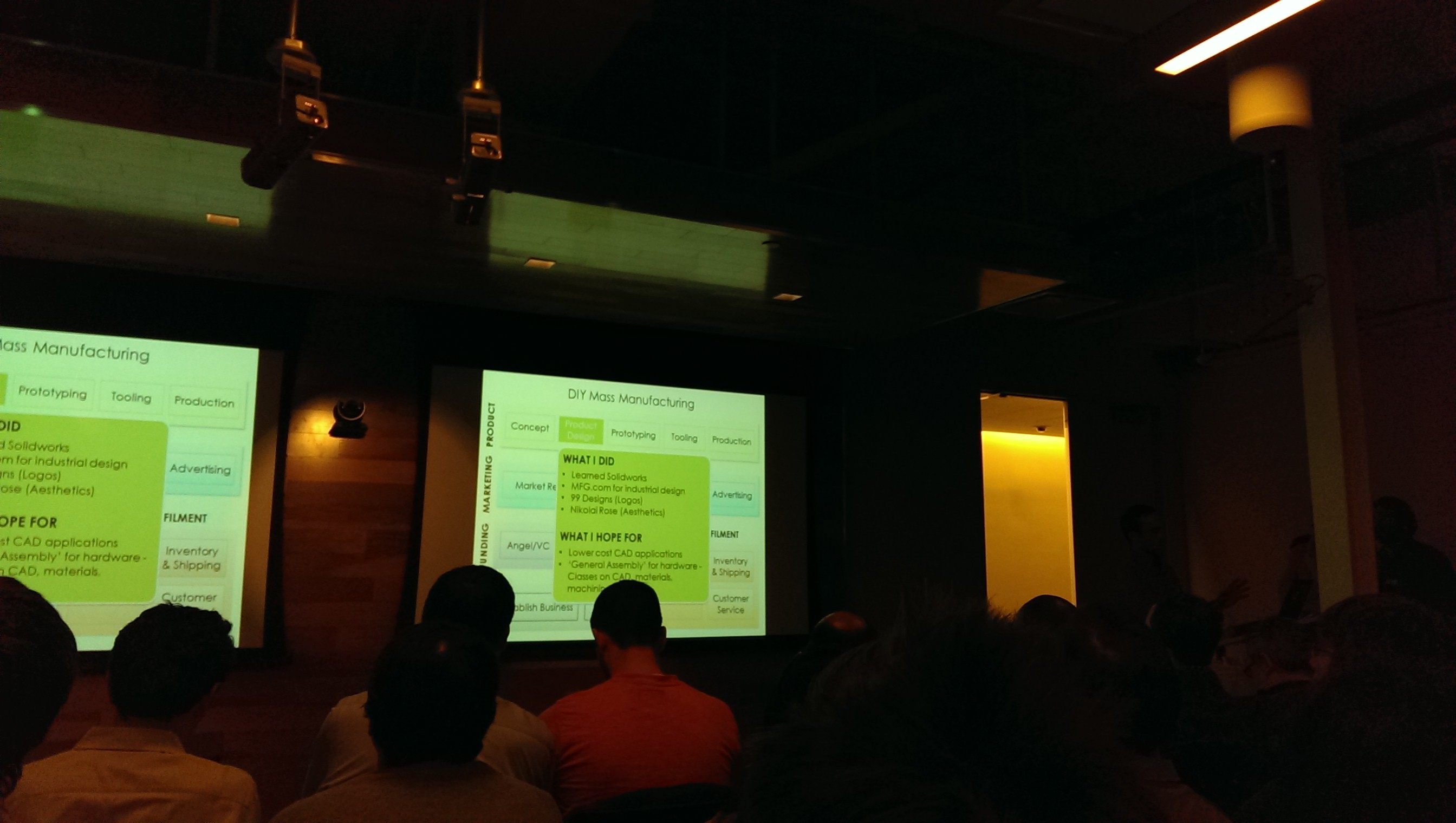
Smash Cup and Fyll
The final presentation of the night was a double dose from Ben Melinger, both inventions representing new twists on beverage container designs. First up was smash cup, a silicon coffee cup that presses flat into a portable circular shape when empty. The second was Fyll, a tough, reusable glass water bottle that proves to be environmentally friendly as well as healthy due to a lack of plastic to dispurse harmful chemicals in the water. He discussed the process he took to reach his final design, from teaching himself solidworks to draft his ideas, to using publicly available 3D printers to save money on machinery. Make XYZ is a site that allows you to search for 3D printers in your area, and MFG.com allows you to compare quotes from potential manufacturers. Ben also mentioned NYC resistor, which has a 3D printer available for people to use.
The first hardware meetup of 2014 was a great one and if the startups on display were any indication, then the rest of the year is going to get even better for hardware in NYC.



